
Deputy Prime Minister Tran Hong Ha speaks at the discussion group - Photo: VGP/Thu Giang
Discussion group No. 5 includes the Party Committee of the Ministry of Construction , the Party Committee of the Vietnam Cement Corporation and the Party Committee of the Housing and Urban Development Investment Corporation. Comrade Tran Hong Ha, member of the Party Central Committee, member of the Standing Committee of the Government Party Committee, Deputy Prime Minister, attended and gave a speech to guide the discussion.
Discussion Group No. 5 recorded 6 profound comments on the draft documents of the 1st Government Party Congress and the draft documents to be submitted to the 14th National Party Congress.
Most delegates expressed their high agreement with the content of the draft documents, saying that this time the reports were elaborately constructed, with many new points in terms of structure, presentation and message. The goals, tasks and solutions are all highly ambitious, demonstrating a strong innovative and reformative mindset and a spirit of decisive action to create breakthroughs in development in the coming period.
Minister of Construction Tran Hong Minh, Head of Group 5, said that delegates focused on many major issues, including the two-level local government model and management capacity at the grassroots level.
According to the Minister, in recent times, the implementation of the 2-level local government model in localities has been carried out synchronously, uniformly, decentralized, and strongly delegated, contributing to improving the effectiveness and efficiency of operations. However, for this model to truly operate smoothly, attention must be paid to a number of issues.
The first is to improve the professional capacity of grassroots cadres, especially in the fields of construction, natural resources - environment, and land. The second is the workload of the commune level. The commune level currently has to carry out about 1,200 tasks that have been decentralized and delegated down.
"Without a solution, it will be very difficult for the apparatus to ensure efficiency and effectiveness," the Minister said.
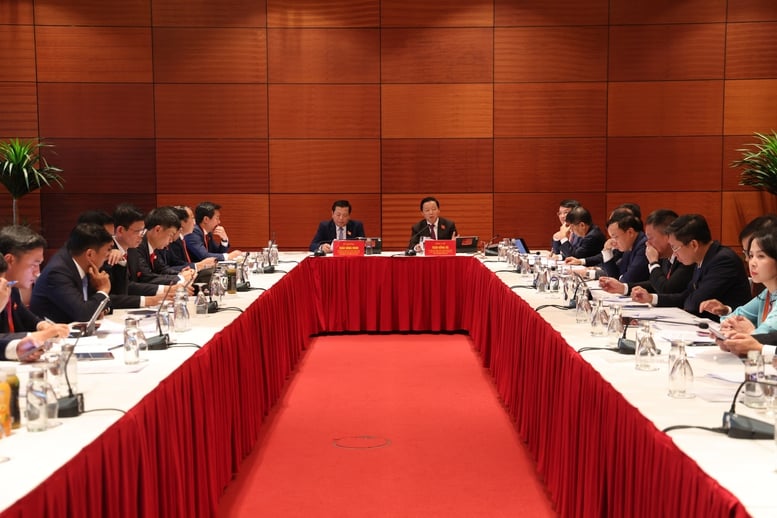
Discussion session at Group 5 - Photo: VGP/Thu Giang
Social housing – an urgent requirement associated with urban development
Another issue that received much attention from discussion group 5 was the policy of developing social housing. Minister Nguyen Hong Minh said that the demand for housing for low-income earners, workers, and graduates in large cities is increasing rapidly.
According to him, the goal of developing 1 million social housing units in 10 years is necessary, but still low compared to actual demand.
"In Hanoi alone, every year there are hundreds of thousands of workers and university graduates in need of accommodation. Without a long-term program with a scale of at least 14-15 million apartments nationwide, it will be very difficult to meet the demand," the Minister stated.
To achieve this goal, it is necessary to have a comprehensive and synchronous policy on land funds, capital sources, incentive mechanisms for enterprises and especially planning to link urban development with social housing, ensuring fairness in access to housing for people.
Minister Tran Hong Minh also mentioned the issue of waste treatment and environmental pollution, as this is a hot issue. He cited examples from recent floods in some localities showing that the amount of waste after natural disasters has exposed many inadequacies.
From there, the Minister emphasized the need to strongly promote the circular economy in waste treatment, increase recycling, and utilize waste to produce fertilizers and construction materials, contributing to reducing pollution and saving resources.

Delegates discuss in group 5 - Photo: VGP/Thu Giang
Institutions must be the driving force for innovation.
Speaking at group 5, Deputy Prime Minister Tran Hong Ha acknowledged the enthusiastic and enthusiastic discussion spirit of the delegates, and emphasized that institutions must truly create momentum for innovation.
The Deputy Prime Minister pointed out that it is necessary to strongly shift from a management institution to a development-creating institution, aiming to encourage innovation and create conditions for businesses, localities and staff in the public sector to promote their capacity.
According to the Deputy Prime Minister, we are currently gradually changing this mindset in the right direction and need to continue to promote it more strongly.
The Deputy Prime Minister pointed out that one area that needs a breakthrough is the planning institution, which must redefine the role of urban and rural planning. It is necessary to unify the thinking of inter-sectoral and integrated planning to ensure sustainable development between urban and rural areas.
Regarding the housing issue, the Deputy Prime Minister said that in addition to developing social housing for low-income people, it is necessary to aim for a higher goal of all people having the opportunity to access suitable housing. The Deputy Prime Minister suggested expanding support policies to create conditions for people in general to have easier access to commercial housing and affordable housing.
Regarding infrastructure, Deputy Prime Minister Tran Hong Ha emphasized the need to change the approach. Urban and rural technical infrastructure is the basic infrastructure of the country. Accordingly, transportation and irrigation systems need to be identified as the foundation, on which other types of infrastructure such as energy, telecommunications, drainage, etc. should be integrated. This integrated planning will help synchronize investment and avoid waste.
The Deputy Prime Minister also noted that it is necessary to adjust infrastructure standards and norms in the direction of adapting to climate change, because recent floods have shown that many transport, electricity and telecommunications projects still have shortcomings. He requested to clearly supplement the orientation report on the content of "multi-purpose, integrated infrastructure, adapting to climate change".
Regarding the development of the marine economy, the Deputy Prime Minister said that a country with a strong maritime sector like Vietnam cannot ignore the shipbuilding and maritime sectors. This is both the foundation for economic development and linked to ensuring security and defense at sea. He suggested that it is necessary to restore and strongly develop this sector, considering it an important content in the upcoming development orientation.
Besides, Vietnam is a river country, so in addition to investing in high-speed railways or urban railways, it is necessary to pay attention to developing inland waterway transport - a suitable and effective mode of transport for the natural conditions of our country.
Regarding the cultural field, the Deputy Prime Minister suggested including contents on summarizing 80 years of the Vietnamese Cultural Outline, while at the same time linking it with the target program of cultural revival and development of Vietnamese culture and people. This is a big issue, clearly demonstrating the Party's viewpoint on culture as the spiritual foundation of society, the endogenous strength for national development.
Finally, the Deputy Prime Minister mentioned the role of the Government Party Committee, and the need for a comprehensive assessment of the period before and after the establishment of the Government Party Committee, in order to clarify the progress and outstanding results in terms of unity, leadership strength and the ability to create breakthroughs in directing and operating the Government's work.
"If we look at it objectively, we can see that since the establishment of the Government Party Committee, its leadership strength, unity and operational efficiency have been clearly improved," the Deputy Prime Minister affirmed.
Thu Giang
Source: https://baochinhphu.vn/dinh-hinh-tu-duy-moi-ve-the-che-kien-tao-ha-tang-tich-hop-va-nha-o-xa-hoi-102251012172247254.htm






![[Photo] General Secretary To Lam attends the opening of the 1st Government Party Congress](https://vphoto.vietnam.vn/thumb/1200x675/vietnam/resource/IMAGE/2025/10/13/1760321055249_ndo_br_cover-9284-jpg.webp)

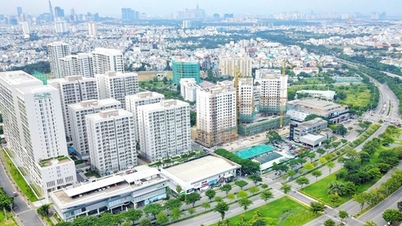

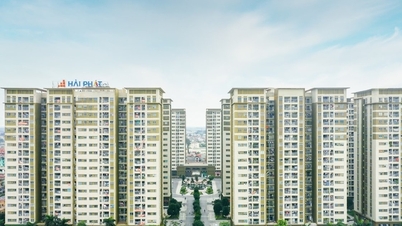
![[Photo] Prime Minister Pham Minh Chinh chairs meeting on breakthrough development of social housing](https://vphoto.vietnam.vn/thumb/402x226/vietnam/resource/IMAGE/2025/10/11/1760173455720_dsc-3201-jpg.webp)

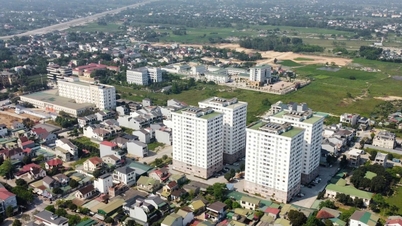



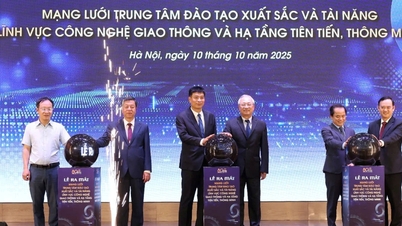

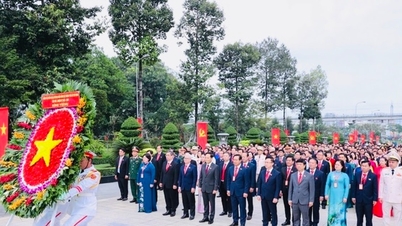
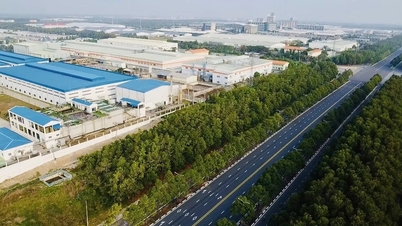
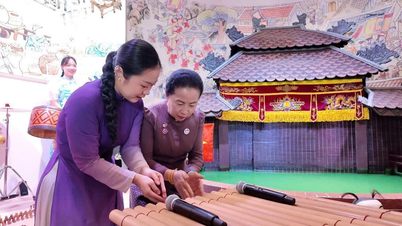

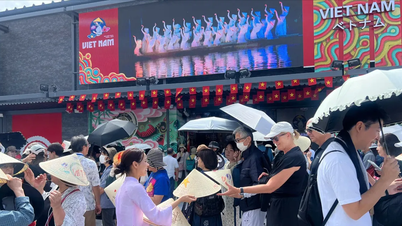








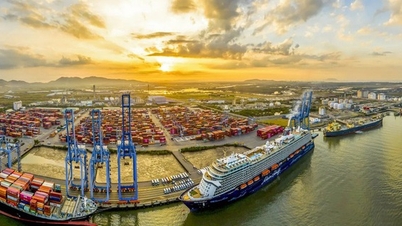
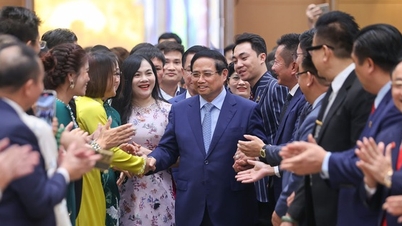

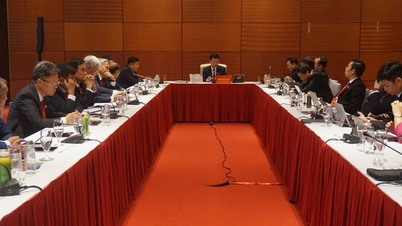

![[Photo] National Assembly Chairman Tran Thanh Man attends the 725th anniversary of the death of National Hero Tran Hung Dao](https://vphoto.vietnam.vn/thumb/1200x675/vietnam/resource/IMAGE/2025/10/12/1760285740475_ndo_br_bnd-8978-jpg.webp)






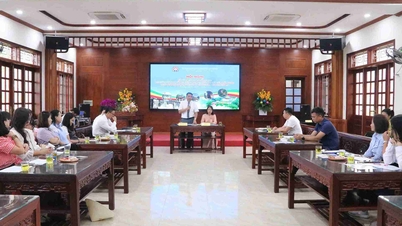












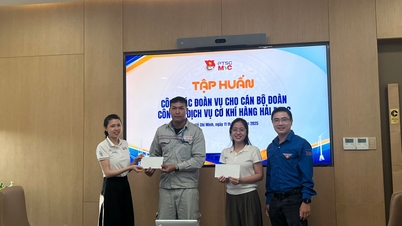

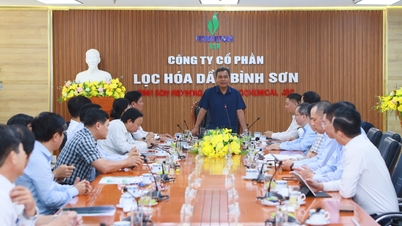












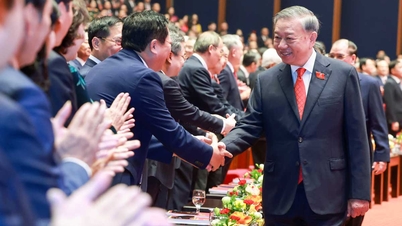

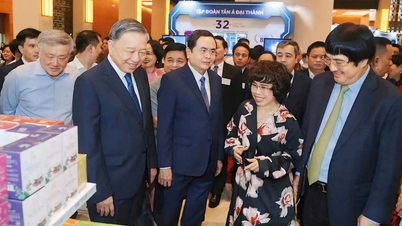

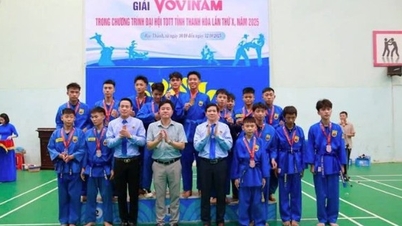

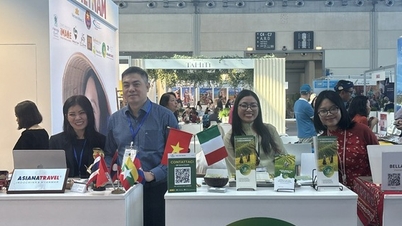

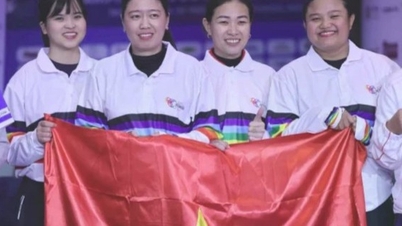
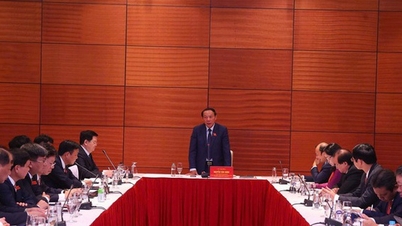

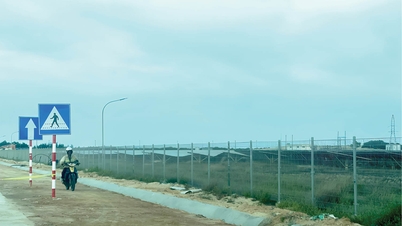



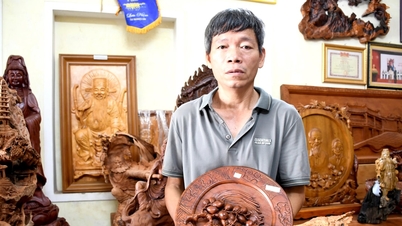





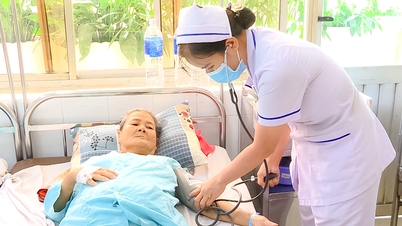
















Comment (0)